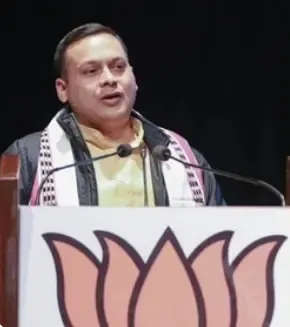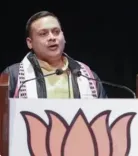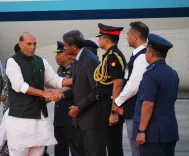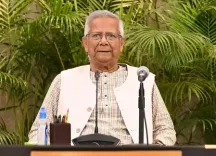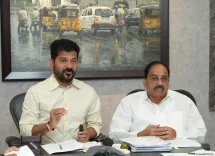Natural Remedies as a Solution to Global Health Issues: Rajasthan Speaker
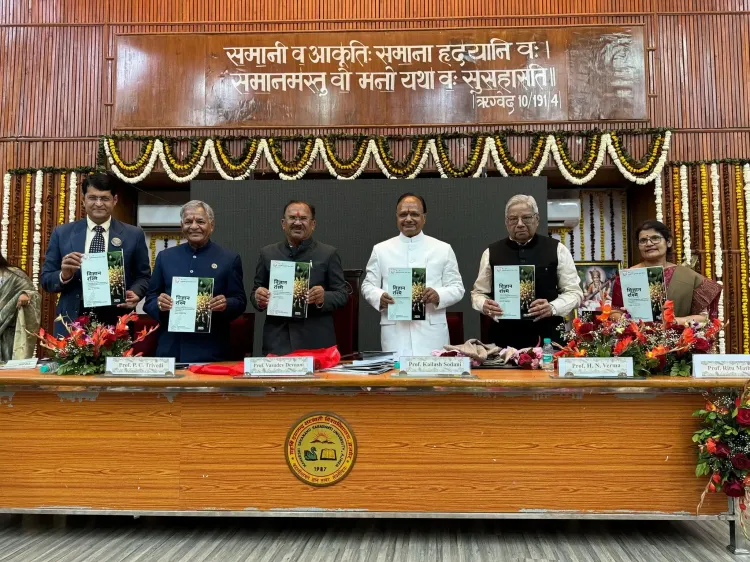
Synopsis
Key Takeaways
- Natural medicines can tackle global health issues.
- Coordination between ancient and modern medical systems is essential.
- Research into plant-based nutraceuticals is pivotal.
- Ayurveda focuses on preventive care, unlike allopathy.
- Indigenous knowledge needs legal protection against patenting.
Jaipur, Feb 10 (NationPress) Rajasthan Assembly Speaker Vasudev Devnani has proclaimed that natural medicines can address global health challenges. He emphasized the importance of synergy between ancient and modern medical systems.
Speaking at an international conference hosted by the Faculty of Botany and Diet & Nutrition at Maharishi Dayanand Saraswati University in Ajmer, focusing on new advancements in plant-based nutraceuticals and medicine, Devnani representing the National Academy of Sciences and the Department of Biotechnology.
During his address, he pointed out the university’s dedication to innovative research and development.
He remarked that the growing health issues globally elevate diet and nutrition to a global concern rather than just a personal matter. He urged for comprehensive research into the healing properties of natural plants and encouraged scholars to delve into traditional wisdom and ancestral remedies.
Moreover, he highlighted the distinction between Western allopathy and Indian Ayurveda. While allopathy targets disease treatment, Ayurveda emphasizes preventive health through a balanced lifestyle and diet. Devnani called for enhanced collaboration between ancient knowledge and modern medical science.
He stressed the significance of plant-based research to uncover the nutritional and medicinal benefits of various plant components, such as leaves, stems, roots, and fruits, urging their integration into daily diets.
Additionally, he appealed to researchers to ensure that findings from laboratories lead to tangible benefits rather than being limited to academic discussions. Professor Devnani highlighted India's long-standing use of medicinal foods like turmeric, neem, and other spices rich in antibiotics, which contribute to healthier and longer lives.
However, he warned that many of India's traditional medical practices have been patented by foreign entities, thus advocating for thorough documentation and legal safeguarding of indigenous knowledge.
University Vice-Chancellor Professor Kailash Sodani remarked that the conference serves as a crucial platform for researchers and science enthusiasts to assess how their findings can be beneficial to society.
The event attracted notable scientists, researchers, and experts from both India and abroad.
Over the next two days, 120 research papers will be presented, covering subjects such as the disease-preventive properties of plants, nutritional therapy, dietary treatments, and the significance of a balanced diet in everyday life.

